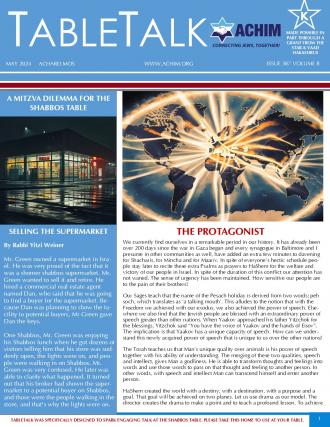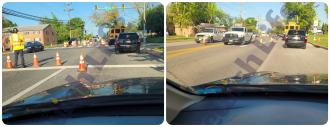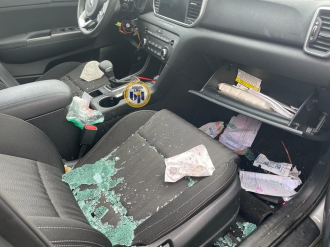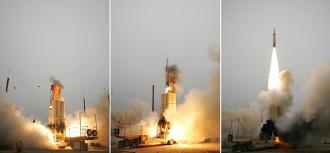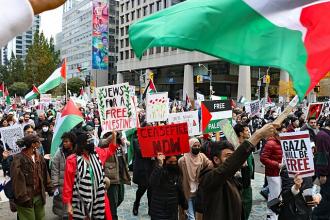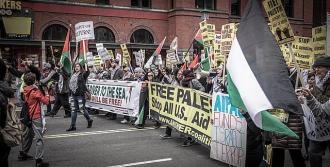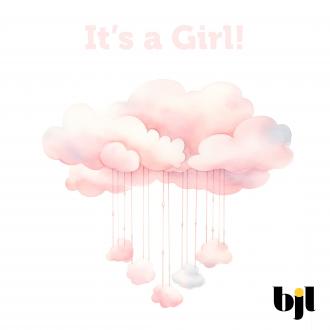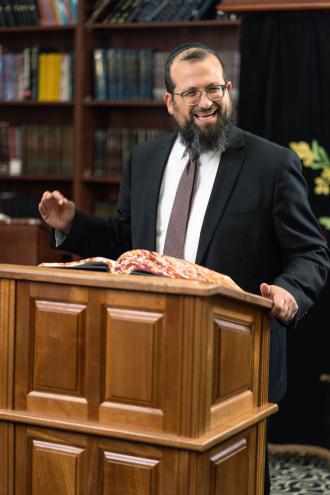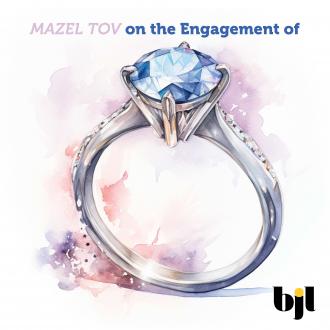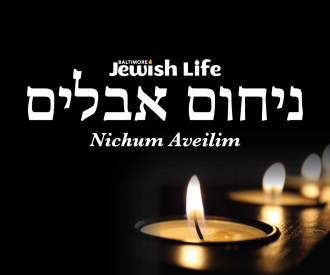He was the greatest prophet of all time. He was the man who would face down a powerful pharaoh, split the sea and spend forty days and forty nights on Mount Sinai receiving the Torah. And it is in this week’s parsha we are privileged to witness his birth. But joy quickly turns to sadness as Yocheved is forced to place her precious son in in his little reed basket in the Nile. Miriam watches as the basket is carried away by the current. As Divine Providence would have it, the daughter of Pharaoh (Bityah) was bathing by the river, sees the basket and saves the little boy.
The child grew up, and she brought him to Pharaoh's daughter, and he became like her son. She named him Moses, and she said, "For I drew him from the water (Exodus 2:10)."
The Talmud explains that Moshe was not the little boy’s given name. His mother, Yocheved, named him Toviah (or Tov) reflecting the inherent goodness she perceived within her newborn son. If so, why is the greatest prophet of all times known by the name given to him by his Egyptian adopted mother and not the name given to him by his Jewish birth mother?
The commentaries explain that Moshe’s name is a testament to the tenacity and courage of Bityah (Pharaoh’s daughter). This young woman was willing to defy the edicts of her own father in an effort to save a Jewish baby with whom she had no previous connection. As a show of gratitude for her courage and strength, the greatest prophet of all time is known by the name of Moshe.
This insight resonates with me as I write these words to you from Israel. This past Wednesday, I had the great privilege of spending time in the holy city of Hebron. I was struck by a meaningful and uplifting story about a woman by the name of Sarah Nachshon which I would like to share with you (reprinted with the permission of www.hebron.com).
Sarah Nachshon grew up in the village of Kfar Chassidim in the north of Israel. Her parents had fled from Poland several months before World War II, and despite their poverty, she has sweet memories of her childhood. "My family lived in a small shack, and we didn't have any toys or anything else. I had only one dress, and if I wanted to wear another dress I had to trade with one of my friends. But I will tell you something - I had a wonderful childhood. My parents taught me to be happy with what I have, and that is a value that I have worked hard to pass on to my own children as well."
Growing up, Nachshon also learned from her parents the value of self-sacrifice for the land of Israel. "I remember the stories my parents told us of how they fought against the British in order to establish the State of Israel. My parents taught me that if the Jews want to keep the Land of Israel, then we must fight for the Land of Israel. If we don't fight for it, they taught me, we will lose it, G‑d forbid."
After the Six Day War in 1967, Nachshon and her husband, the respected Chassidic artist Baruch Nachshon, joined a group of idealistic activists determined to reestablish the ancient Jewish community inside newly-liberated Hebron. The Lubavitcher Rebbe encouraged them and endowed them with many blessings for their efforts. These activists understood the supreme importance of establishing a Jewish presence in the oldest of the Israel's four holy cities, where a Jewish community had existed for hundreds of years until the massacre of sixty-seven Jews by local Arabs in 1929. They also understood that maintaining a Jewish community in Hebron would be the only way to guarantee continued Jewish access to the Cave of Machpelah, the burial site of our Matriarchs and Patriarchs and the second holiest site in Judaism which until 1967 had been barred to Jews by the Muslim authorities for over 700 years.
In 1968, the Nachshons and their four young children moved with this group of activists into an Arab-owned hotel inside Hebron. Nachshon recalls, "An army official came to meet with our group, and told us that we were a big pain in his neck. But he told us that because the government feared for our safety, they had reluctantly agreed that a group of seven families and fifteen yeshiva students could stay in Hebron if we would move into an army compound overlooking the city. They assumed that we would not be able to tolerate the terrible conditions for long - living in one room with all of our children, only one kitchen for all of us to share, and with the only bathrooms outside. The army saw us with our little children and thought that within a few weeks we would give up and leave. They thought that our dream to live in Hebron would die right then and there."
But the army underestimated the determination of this small but committed group. Over those three years, not only did the families not move out; thirty more families moved in. While living in the army compound, Sarah Nachshon gave birth to three more children, and repeatedly risked imprisonment by defying government orders and circumcising her newborn sons at the Cave of Machpelah. When the mohel, the ritual circumciser, performed the first circumcision at Machpelah in over 700 years on Nachshon's son, he wept as he said the blessing over "the covenant of Abraham our father," in the burial place of the Patriarch himself.
Despite the challenging physical conditions, Nachshon remembers the years she spent at the army compound with much nostalgia. She recalls, "When we were living in the army camp, my sister visited us from her home in Canada at the beginning of one of my pregnancies. She asked me, 'Sarah, do you mean to tell me that you will spend this whole pregnancy living in a place with an outdoor bathroom?' I told her, 'I'll tell you something! I am happier to live in one room in the Land of Israel than in a palace in Canada!' Afterwards, when we moved to a larger apartment, my children missed the army compound so much. They were so sad that they could no longer sleep together with all of their siblings in one room."
In 1971, the city of Kiryat Arba was established outside Hebron in order to provide permanent housing for the families from the army compound as well as the many other families who wanted to join them.
While living in Kiryat Arba, Sarah Nachshon experienced one of the most painful chapters of her life. In 1975, she gave birth to a healthy baby named Avraham Yedidya who died without warning of crib death when he was only six months old. The terrible morning that Nachshon found her baby lifeless in his crib, her husband was out of town, and there was no way to reach him. As she made the preparations for the burial all on her own, while she wept and prayed she tried to remind herself that everything G‑d does is for a purpose, even if it is hidden from us. Suddenly, she understood that her lost son was meant to play a sad but vital role in the rebuilding of the City of the Patriarchs. "I decided," she recalls, "that we would bury him in Hebron. Our Avraham Yedidya would be the first Jew buried in the ancient Jewish cemetery of Hebron since the burials of the sixty seven Jews massacred in 1929." Roadblocks and Israeli soldiers who had been given orders to prevent a burial in the ancient cemetery lest it anger the local Arabs, blocked the funeral procession of cars from Kiryat Arba. Sarah Nachshon got out of her car holding her baby wrapped in a sheet. She addressed the soldiers, "Are you looking for me? Are you looking for my baby? My name is Sarah Nachshon. Here is my baby, in my arms. If you won't let us drive to the cemetery, we will walk."
As darkness fell, and the mourners got out of their cars and started walking in the direction of the cemetery, senior army officials continued to order the soldiers over their walkie-talkies, "Stop them! Do not let the funeral procession reach the cemetery under any circumstances!" But the soldiers, unable to turn back this young mother grieving for her lost child, radioed back their superiors, "If you want to stop this woman, come down here and stop her yourself!" One of the soldiers got out of his command car, and as he wept he begged Sarah Nachshon, "Please, Mrs. Nachshon, it is too far to walk! Please permit me to drive you to the Jewish cemetery."
Thirty-two years later, tears still come to Sarah Nachshon's eyes when she remembers the words she said to the hundreds of people who gathered that summer night to bury her son. "I told them, 'It has been a hard day, but there is something I must tell you. I, Sarah, am holding my baby, Avraham, in my arms. And just as Avraham our Father came to Hebron to bury his Sarah, so too, I, Sarah, have come here to bury my Avraham. At this moment, I know why G‑d gave me this irreplaceable gift for only six months. To reopen the ancient Jewish cemetery of Hebron.'"
Life often calls upon us to engage in heroic and courageous activity. There are circumstances that require us to extend our hand, walk past the roadblocks and find our deep reservoir of strength. We often don’t choose these circumstances. They choose us. Our mandate is to find the koach to meet the challenge at hand. May we find the strength of Bityah, the strength of Sarah Nachshon, the strength of so many who have come before us and use it to overcome and grow from our challenges and difficulties.

